Experiential Learning is something that we have all heard of. Same is the case with activity based education. ‘Learning by doing’ is a common phrase we use as well. Craft based education however is something that can be a little confusing.
“It is great for children to explore activities like crafts. Every child has something creative in them and it comes out in different ways. Crafts can help children explore creative avenues and discover what craft lies inside of them”
“An activity like this helps children understand the history and tradition behind many of the things that they see around them. Additionally it is something that can also support them financially if they are able to develop skill in it”
“Introducing children to the world of crafts they can help support craftsmen through the various innovations that they can create as professionals of various disciplines in the future”
These are some of the remarks that we have heard interacting with school teachers about the project. These remarks all indicate a positive outlook. And while these are all valuable aspects in their own right none of then capture the essence of Khamir’s project. The Craft Curriculum Project at Khamir believes that understanding crafts is a great medium for us to learn. For us to learn about the world around us, learn about materials, learn about techniques and learn about the science, mathematics, language and social science that we find in these. Learn all of our curricular subjects through experiential doors that crafts can open for us.
Along with dialogue about our relationship with tradition and our relationship with this earth. We see crafts as a way to strengthen our current education. As a way to contextualise our textbooks and make a lot of the learning experimental, longer lasting and more fun. Rather than an extra activity for children to engage in. Additionally, to communicate this well Hastkala Killol was imagined.
Hastkala Killol aka Craft Mela
Hastkala Killol referred to within Khamir as Craft Mela is an 8-day fair being held at the Khamir campus. The objective of the fair is to communicate the essence of the Craft Curriculum Project to schools, students, parents, teachers and artisans through a series of sessions. To be able to give a glimpse of the intersection of craft and education looks like and can be. We invited schools to visit for a period of three hours. Each learner would go through three craft workshops uncovering a larger narrative.


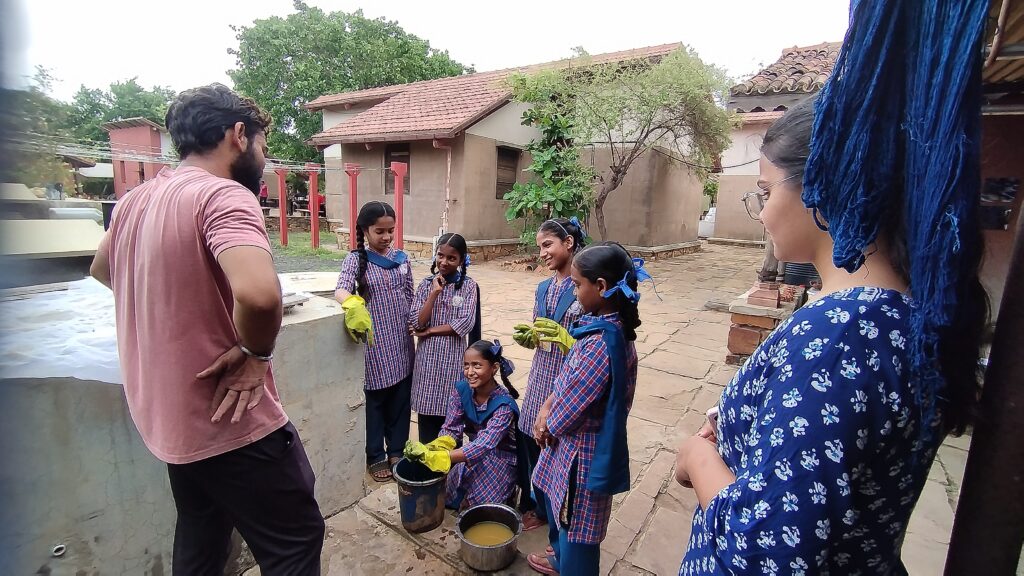
By the end of Hastkala Killol, 15 schools visited, more than 900 students went through the sessions and more than 350 workshops were conducted. It’s an event at a scale that was new for me. I’ve always only been involved with events as a volunteer and seen them through execution taking care of little bit of responsibility. The Mela however, I have seen through conceptualizing, planning and then execution.
Also Read: A Brief Introduction To Crafts – From Kachchh, Gujarat
Till a few days ago my team and I were not sure about how the Mela would go. Months of planning and weeks of confusion. But this has been a lovely experience for me and I am happy to let you know that as I write this the craft mela is going on. It’s going well. The students are enjoying it, and so are we.
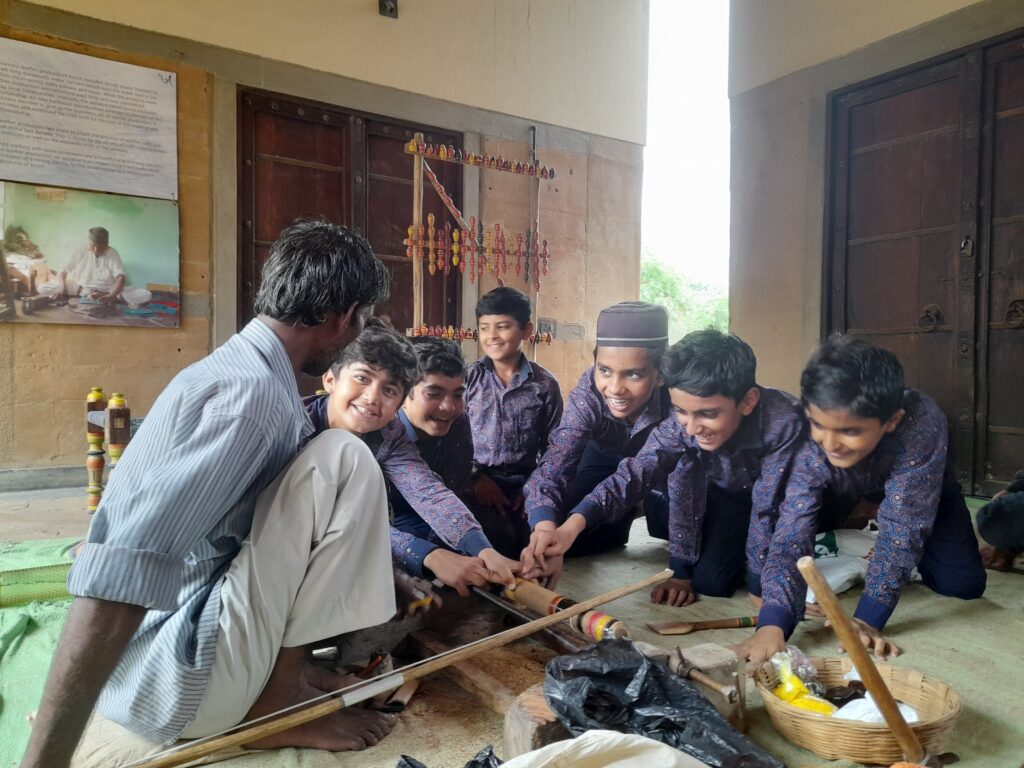
The road to the mela was a very long and winding one. Filled with curves, unclear signs, confusions as well as many u turns and a lot of re routing. Redesigned once and postponed twice. The content prepared for the Mela was vast. However, what’s just as important is how it all came together. Came together with the artisans, the Khamir team and with all the volunteers and participants. Hence, it has been a very rich learning ground for me.
Learning about crafts that I didn’t know much about earlier their process and history as I worked on the content and interacted with artisans. Additionally, it has been just as important a ground for learning about how to organise something and event like this and the importance of engaging people in your work. These are things about how we organise ourselves, how we communicate with each other and how a group of people work towards one thing.
Forming a Team
There are very few things that one can do alone. Or even that one can do with a small team. Including people in planning and execution or the organising and delegation of tasks is something that isn’t a strong suit for my team. However, we learnt very quickly about the efficiency, speed, and creativity that one can bring to the table by engaging people who have interest in the work.
Responsibilities and Creative Freedom Instead Of Tasks
Over the last 10 months I have been part of a team for such a long period for the first time. Since I’ve almost always worked individually previously, I came to understand that one can always put more faith in their team members. To not micromanage and allow someone to take care of things on their own and do what feels right to them.
Importance Of A Good Orientation
Involving someone in the project and handing them tasks and responsibilities is one way to go ahead with including anyone in a team. However, before any of this one needs to be introduced to the work they are about to engage with. If we are involving people to be volunteers in the craft mela then one should have a long conversation with them regarding the entire project and how the mela fits into the larger picture of the Craft Curriculum Project. And what we saw and observed about the world of education and world of crafts has led to this project in the first place.
Keeping-up Communication With Everyone Around You
They could be involved in your project or not. They could be responsible for parts of it or not. The more people know about what’s going to happen, the more ideas, solutions and alternatives come in at any given point. The event is for everyone at the workplace just as much as it is for the participants and visitors. Engaging colleagues as co organisers and as participants. Sharing this idea of crafts and education with people within the organisation and outside.
Taking Feedback At Regular Intervals and Sharing Reflections
Taking regular feedback is a great way of maintaining communication regarding updates and the completion of parts of a plan. Conversation around ideas can help shape them faster and bring to light aspects that were not part of our plan. Making ideas more holistic and more actionable.
Everyday that is part of the craft mela ends with a reflection within the team. All members of Khamir, artisans who are available by the end and volunteers that are a part of various roles come together to sit in a circle and speak of their reflection about the day. Apart from our observations, insights and concerns we make it a point to discuss a positive moment from the day.
One Proofreader Is Never Enough
Poof reading is an important part of communication material that we share as part of any event. And the more times one proof reads what they have written the better. To have more than one proof reader is good for it lets you have another perspective about how one frames any part of writing, what it communicates and how it can improve.
Just Do It!
Don’t postpone anything that you can do now. Do things as you think of them. Later you will always have other things and often times more urgent or important to do.

Hstakala Killol has been an eye opening and energising experience. More than anything it has helped us visualise. Visualise how engaged we want to see the rest of the Khamir team in this education endeavour. Visualise how we do we see an artisan take over the class, be in the role of a facilitator, and what this integration of crafts and education can look like.
With this energy I feel excited to prepare a new curriculum, collate more content and get to conducting sessions in school. The planning of Hastkala Killol also saw many ups and downs. It was filled with mistakes, redesigns, inefficiencies and miscommunication. However, standing in the midst of it I feel confident and ready to organise the next craft mela.

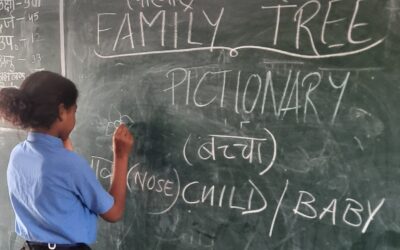
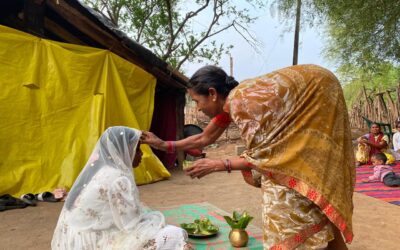
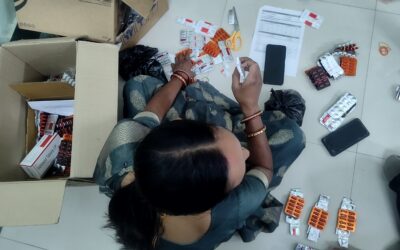
I would like to attend the next hastakal killol.